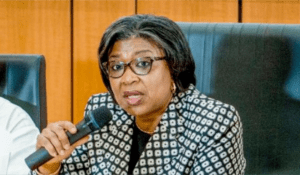
Nigeria seeks $500m W’Bank loan for IDPs crisis
By Sodiq Adelakun
The federal government is in talks with the World Bank to secure a substantial loan of $500 million aimed at addressing the dire situation of internally displaced persons (IDPs) and the communities hosting them.
This financial aid is intended to support the “Solutions for the Internally Displaced and Host Communities Project,” a program set to transform the provision of basic services and economic opportunities in the conflict-ridden Northern Nigeria.
Northern Nigeria has been grappling with a severe displacement crisis, exacerbated by ongoing conflict, escalating violence, and the relentless impact of climate change. Millions have been forced from their homes, seeking refuge within the country’s borders.
The proposed project, which is on the World Bank’s agenda for approval by April 8, 2025, seeks to mitigate the hardships faced by these vulnerable populations.
The Federal Ministry of Budget and Economic Planning is stepping forward as the borrower on behalf of the Nigerian government. Execution of the project will be a collaborative effort, with the National Commission for Refugee Migrants and Internally Displaced Persons and the North East Development Commission taking the helm as the primary implementing agencies.
The World Bank has outlined that the initiative will focus on enhancing resilient and inclusive access to essential services, aiming to bolster the quality of life for millions impacted by the internal displacement.
This move is a significant stride in Nigeria’s ongoing efforts to stabilise the region and provide sustainable solutions for its displaced citizens and their host communities.
A document from the Washington-based lender read: “The proposed project will utilize a three-pronged approach to develop sustainable solutions for IDPs and host communities in Northern Nigeria.
“First, the proposed project aims to provide tailored solutions for each of the targeted states and communities, recognising that each internal displacement situation is specific and localized, with conflict, violence and/or climate challenges presenting a different level and set of vulnerabilities for host communities.
“Gender, age, and special needs of individuals also play a role, as well as the length of displacement, number of times displaced and other factors. Thus, responses will be adapted to address the specific needs of vulnerable populations within displacement-affected states and communities. Second, the proposed project will follow a ‘People-in-Place’ approach, integrating the needs of the people and the impacts on the place where they settle.
“Project activities will aim to improve the provision of infrastructure and basic services as well as livelihood opportunities in an integrated way, moving beyond capital investments to supporting operational improvements and sectoral reforms, and fostering income-generating opportunities within host communities.”
According to a review by a World Bank team, Northern Nigeria, particularly the states of Borno, Adamawa, and Yobe, has witnessed the highest numbers of IDPs, mainly due to the ongoing conflict involving Boko Haram and other factors such as banditry and farmer-herder conflicts.
Borno State alone hosts nearly 1.7 million IDPs, which is over a quarter of its total population and almost half of the total IDP population in Northern Nigeria.
The situation is worsened by conflicts and climate shocks, hindering poverty reduction efforts and contributing to Nigeria’s status as one of the countries with the largest and fastest-growing populations of internally displaced persons (IDPs) globally.
These difficulties have had a significant effect on the economic and social landscape of Northern Nigeria, with more than 3.5 million individuals displaced as a result.
These challenges have significantly impacted the economic and social fabric of Northern Nigeria, with displacement affecting over 3.5 million people.




